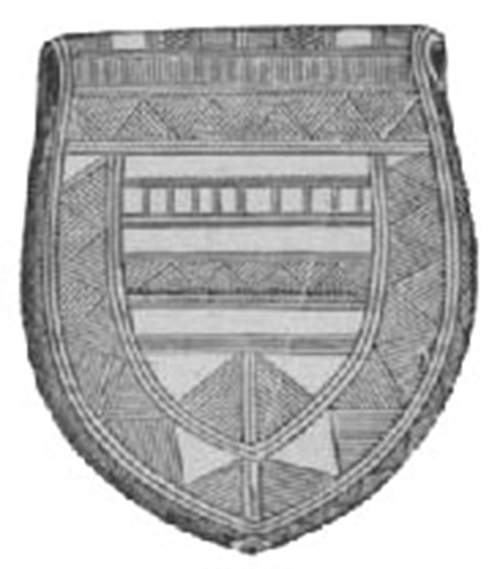Irish Worship of the Elements
From A Smaller Social History of Ancient Ireland 1906
« previous page | contents | start of chapter | next page »
CHAPTER V....continued
6. Worship of the Elements.
Elemental Worship in General.—In the Lives of the saints and other ecclesiastical writings, as well as in the lay literature, we have ample evidence that various natural objects were worshipped by the ancient Irish. But this worship was only partial, confined to individuals or to the people of certain districts, each individual or family or group having some special favourite object. We have no record of the universal worship of any element. There is reason to believe that it was not the mere material object they worshipped, but a spirit or genius supposed to dwell in it: for the Celts of Ireland peopled almost all remarkable natural objects with preternatural beings.
Wells.—The worship of water, as represented in wells, is often mentioned. The Tripartite Life, and Tirechan, in the Book of Armagh, relate that St. Patrick, in his journey through Connaught, came to a well called Slán, which the heathens worshipped as a god, believing that a certain 'prophet' had caused himself to be buried under it in a stone coffin to keep his bones cool from fire that he dreaded; for 'he adored water as a god, but hated fire as an evil being." This prophet was of course a druid. More than a century later, in the time of St. Columba, as will be found mentioned in next chapter, there was a well in Scotland which the pagan people "worshipped as a divinity." These healing wells were generally called by the appropriate name of Slán [slaun], which means 'healing.' It is to be observed that well-worship was not peculiar to Ireland: at one time it prevailed all over Europe.
The Sun.—That the sun was worshipped in Ireland—at least partially, like some other natural objects—is made certain by several passages in our ancient literature. St. Patrick plainly intimates this when he says in his Confession—speaking of the Irish —that all who adore the sun shall perish eternally. This is a contemporary statement: for the saint is evidently denouncing a practice existing in his own time.
FIG. 34. Amulet, half the size of the original, which is covered over with a thin plate of gold, beautifully ornamented: the interior is of lead. In the National Museum. (From Wilde's Catalogue.)
We have a more specific account in Cormac's Glossary; but this entry is four centuries later, and records, not contemporary custom, but one existing long before the time of the compilation of the Glossary. It states that Indelba ('Images') was the name applied to the altars of certain idols: and that these altars were so called because "they [the pagans] were wont to carve on them the forms (Irish, delba) of the elements they adored: for example, the figure of the sun." One of the three last Dedannan kings of Ireland, as we are told, was named Mac Grena ('son or devotee of the sun') because his god was the sun.
Fire.—That fire was worshipped by some of the Irish appears from the statement in the Tripartite Life that Laegaire's druid accused St. Patrick of having fire for a god, which shows that the idea of fire-worship was familiar. We have already seen that fires were kindled by the druids at Ushnagh in honour of the god Bél, and that fire played a prominent part in certain pagan festivals. Many of these fire-ceremonies—now quite harmless—have descended to our own time, some signalising the 1st of May, and some the eve of the 24th June, when the people light open-air fires as soon as dusk comes on, so that the whole country is illuminated.
Elemental Oath.—No doubt this ancient elemental worship was the origin of the very general pagan Irish custom of swearing by the elements, or, in other words, giving the elements as guarantee: an oath which it was believed very dangerous to violate, as is shown by the fate of Laegaire, king of Ireland in the time of St. Patrick. In an attempt to exact the Boruma tribute from Leinster, he was defeated and taken prisoner by the Leinstermen: but was released on taking the usual oath, giving as guarantee—i.e., swearing by—the "sun and moon, water and air, day and night, sea and land," that he would never again demand it. But in open violation of his oath he invaded Leinster (A.D. 463) for this same Tribute in less than two years: whereupon—as the Four Masters express it—"the sun and wind killed him because he had violated them": "for"—says an older authority, the Book of the Dun Cow—"no one durst violate them at that time."

